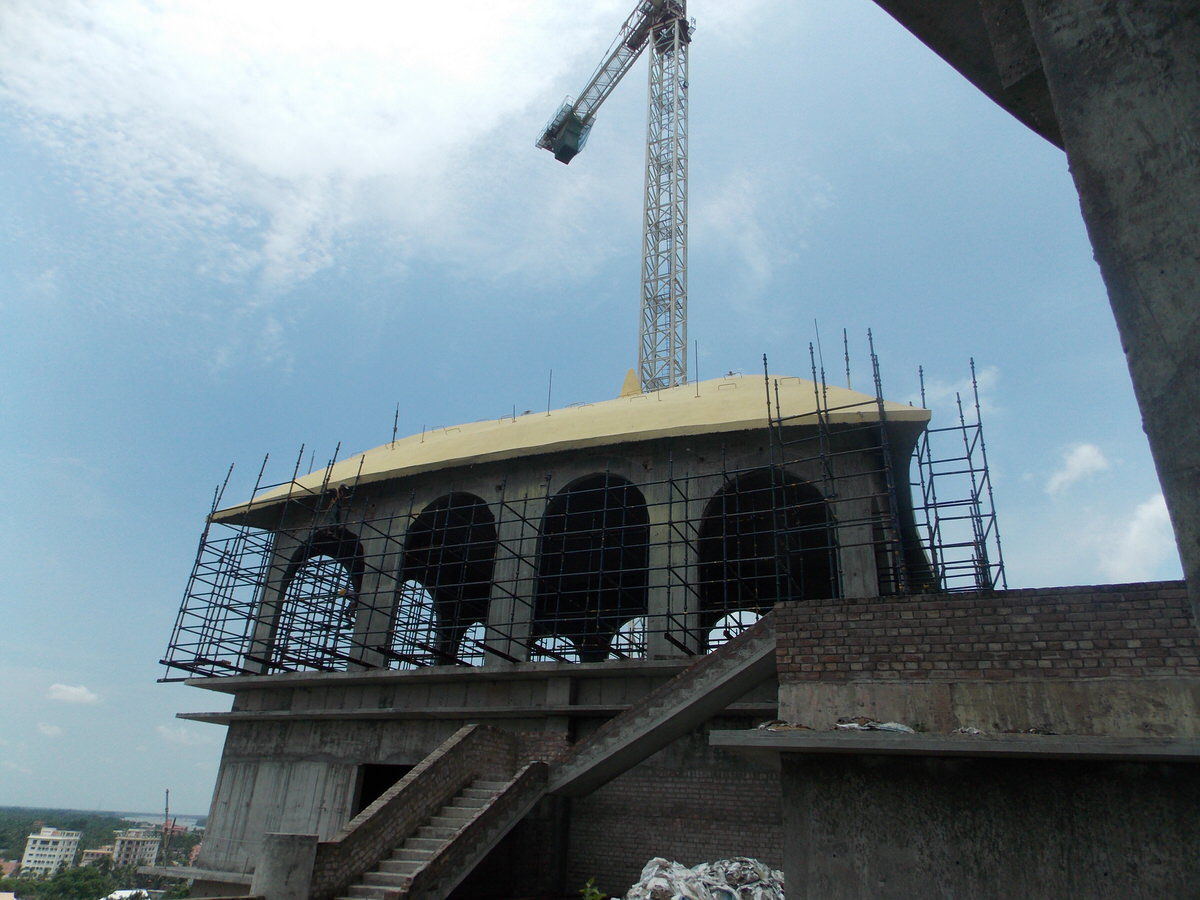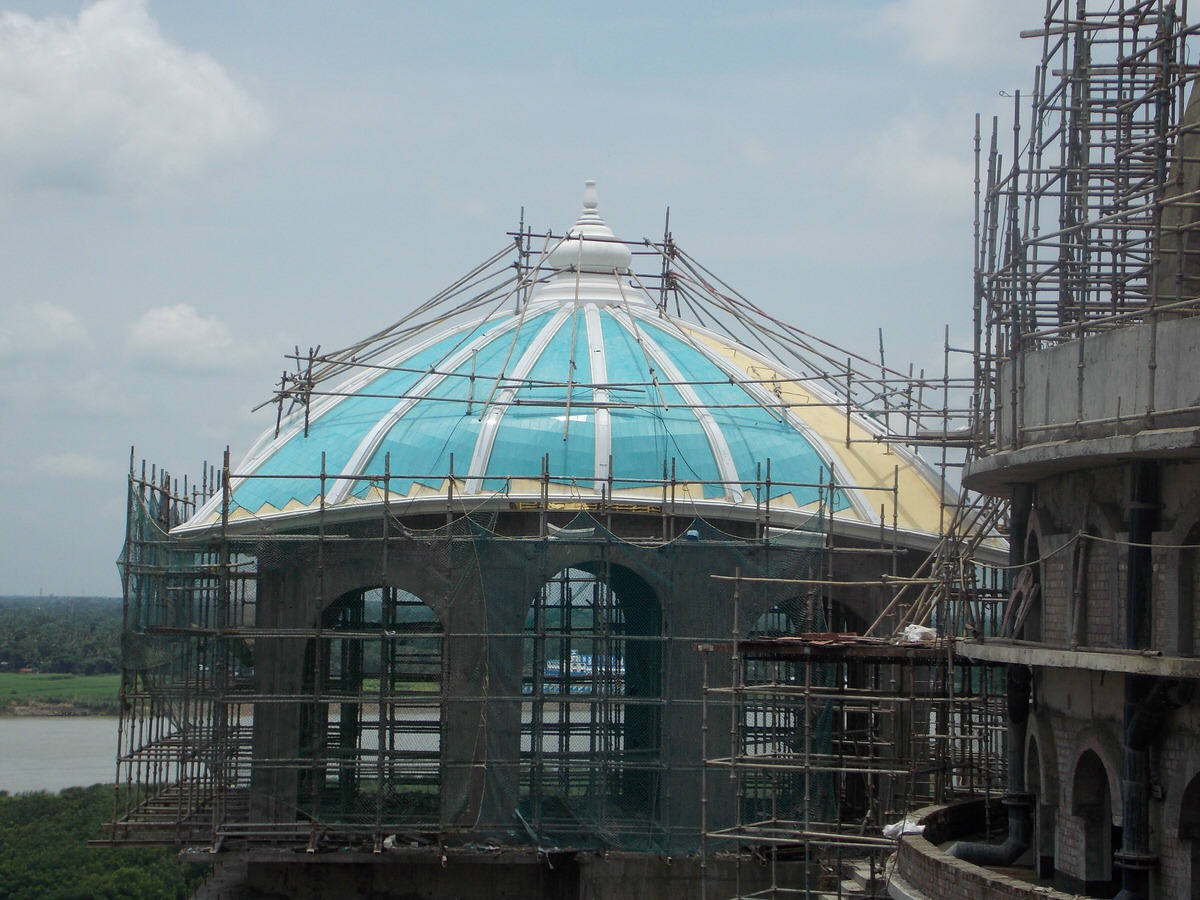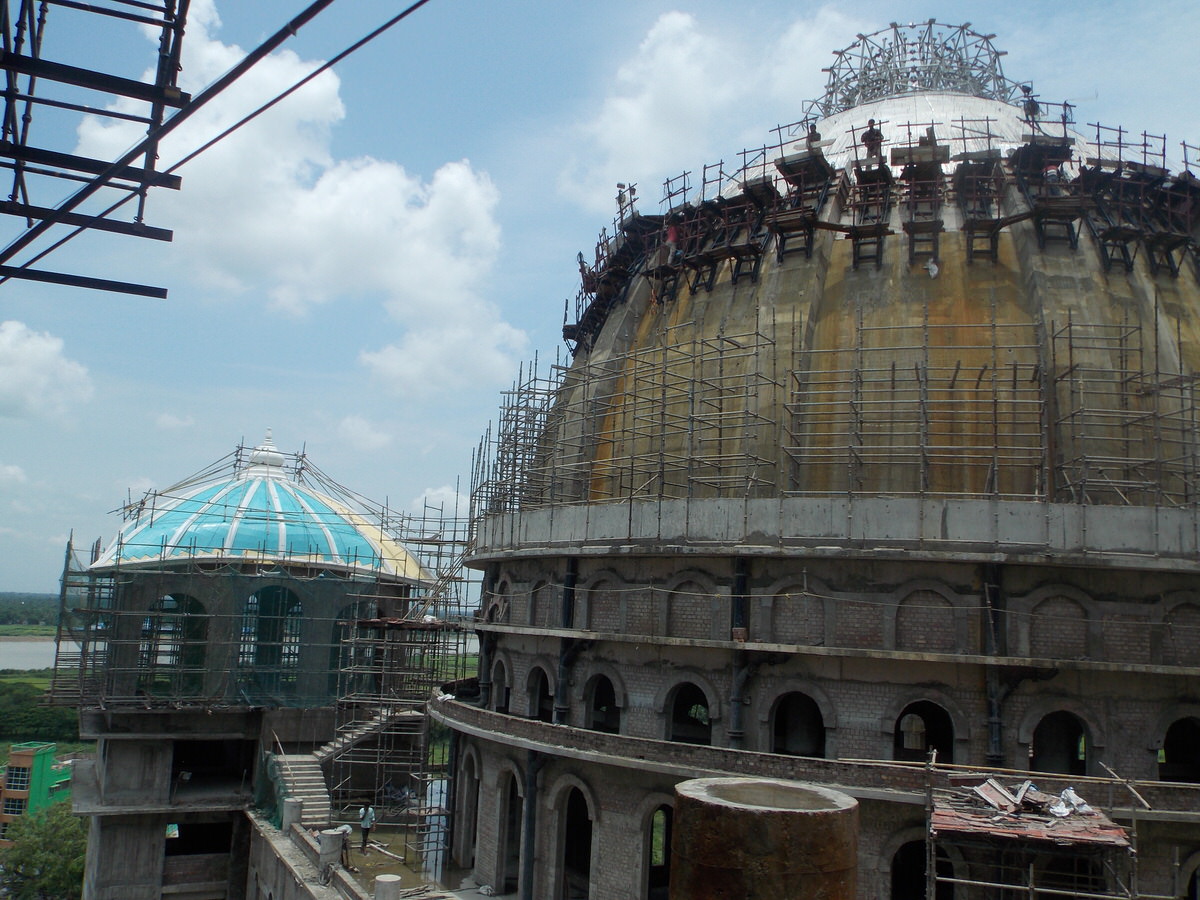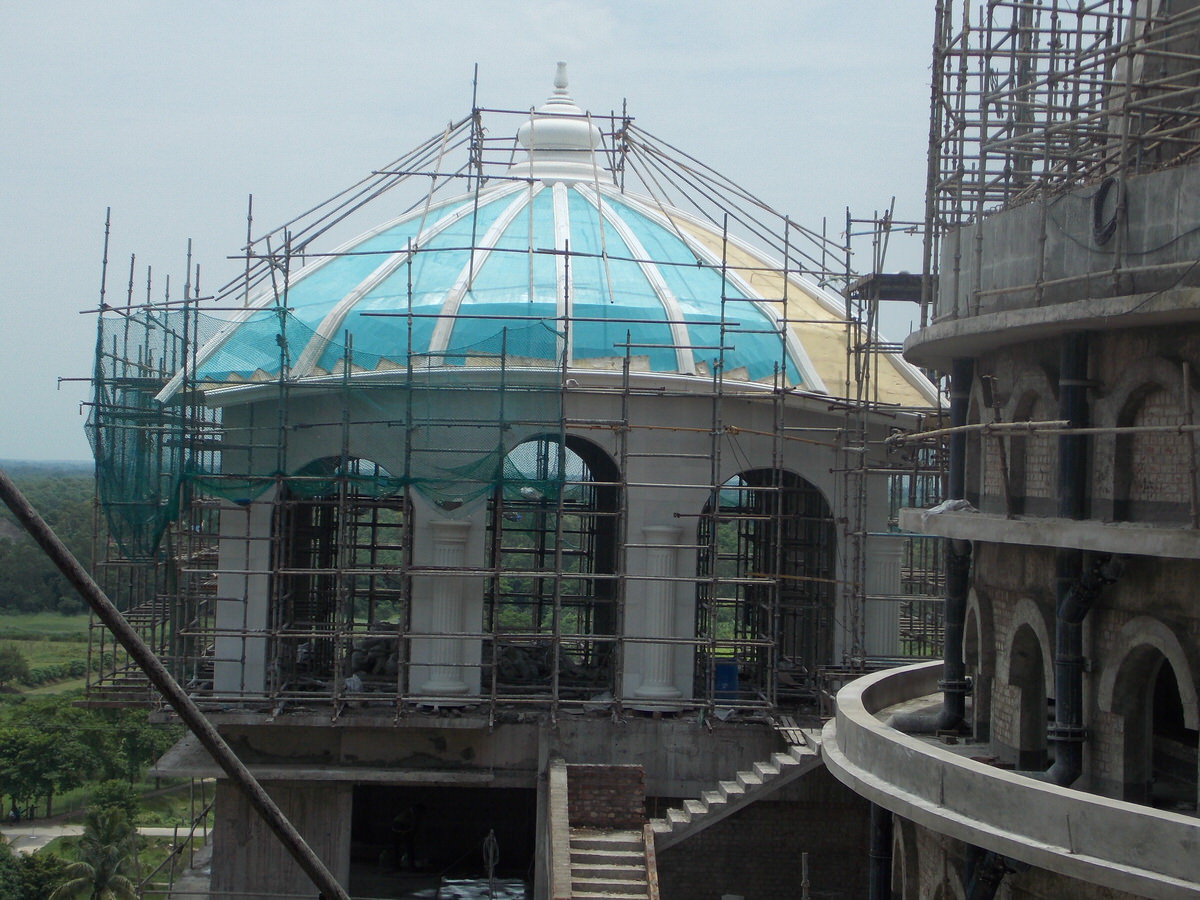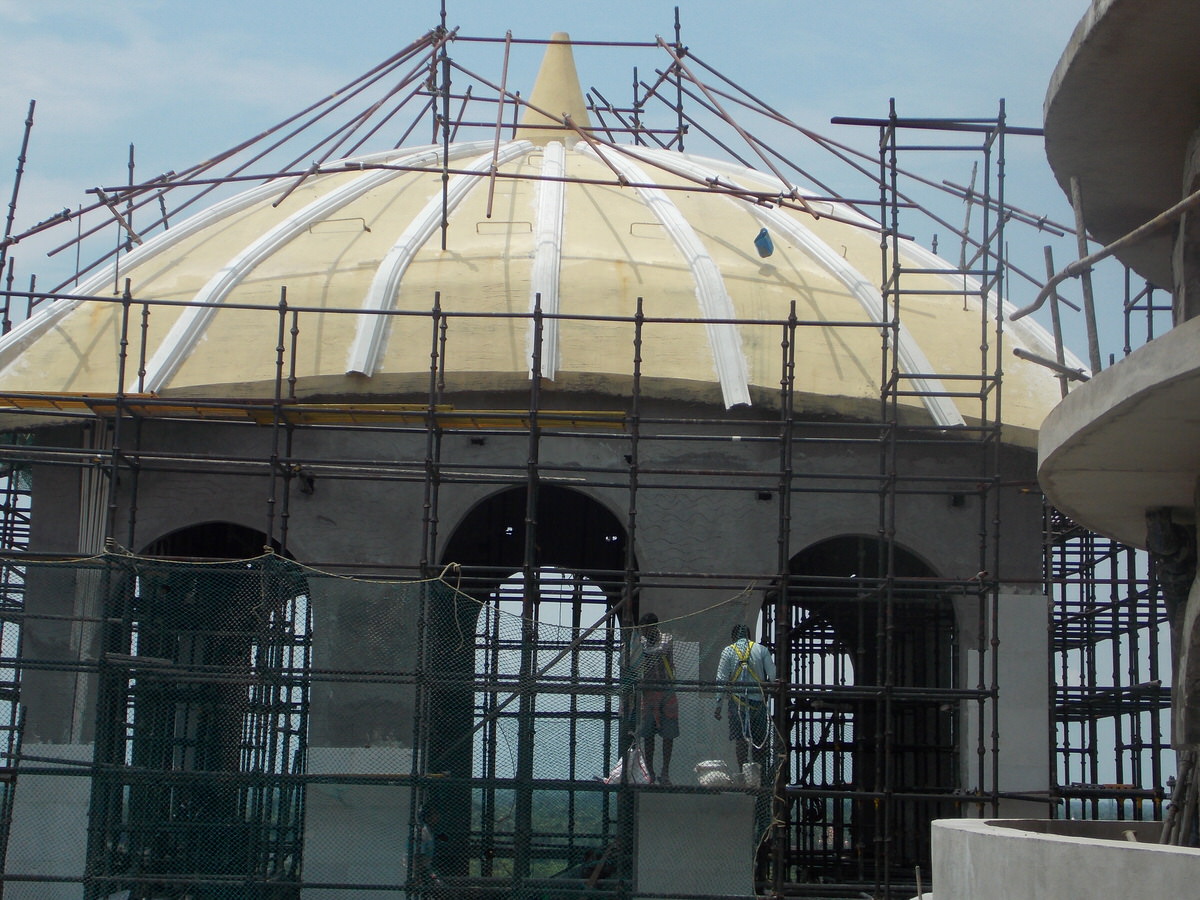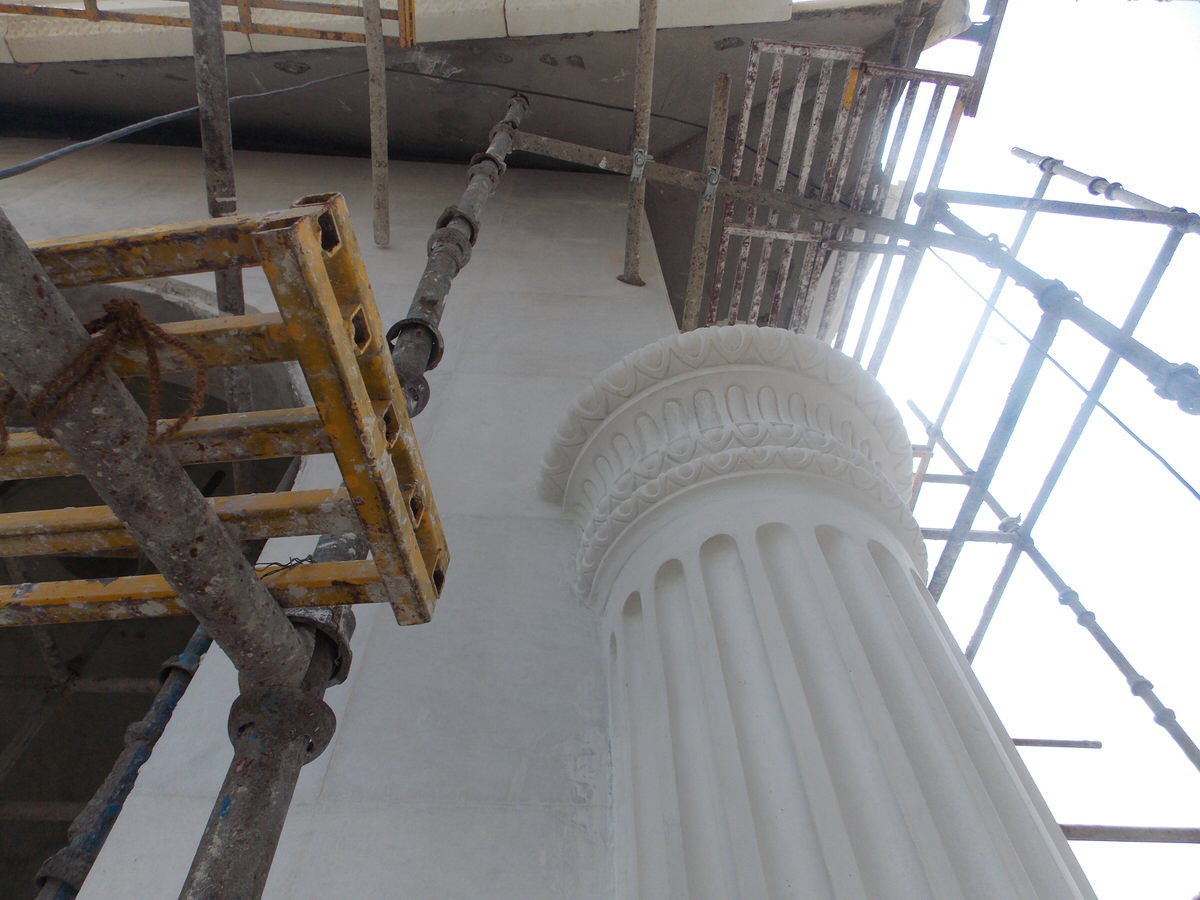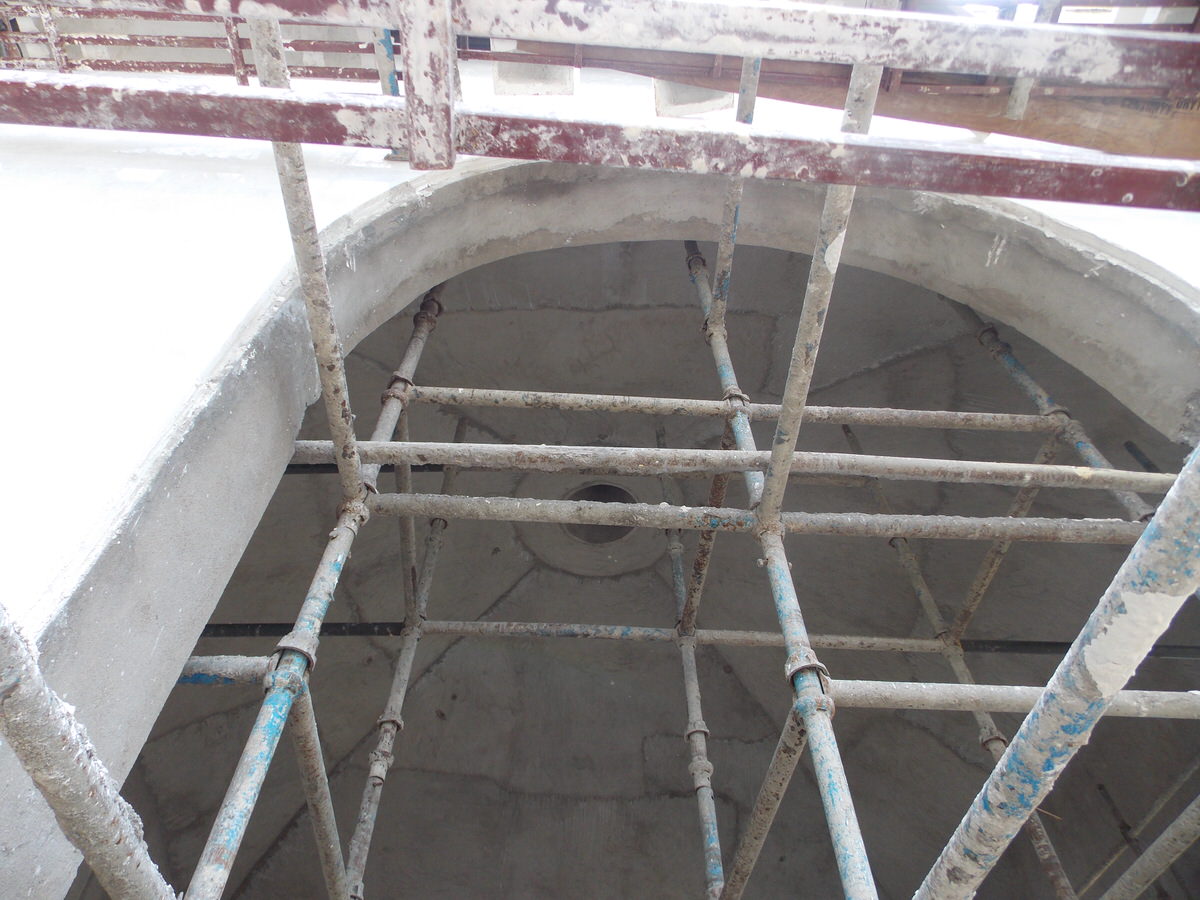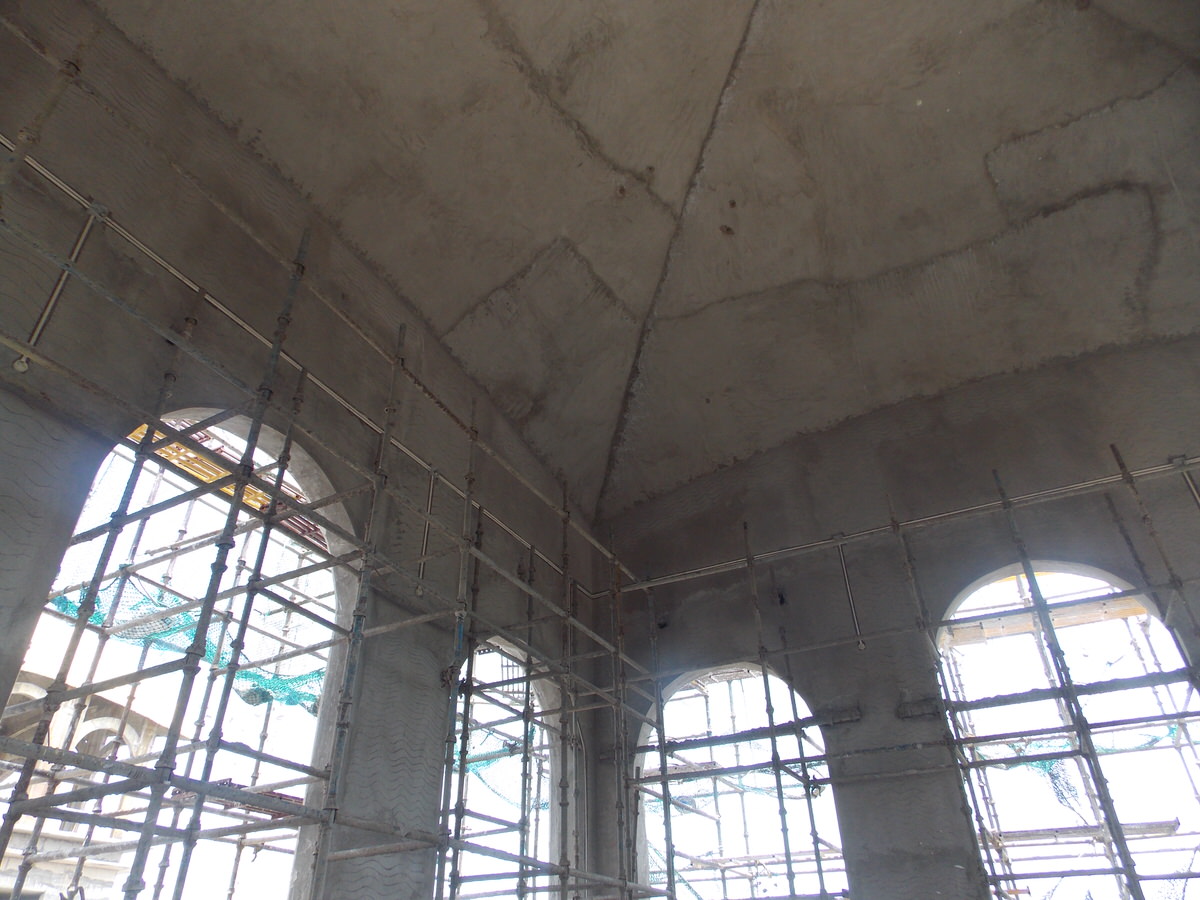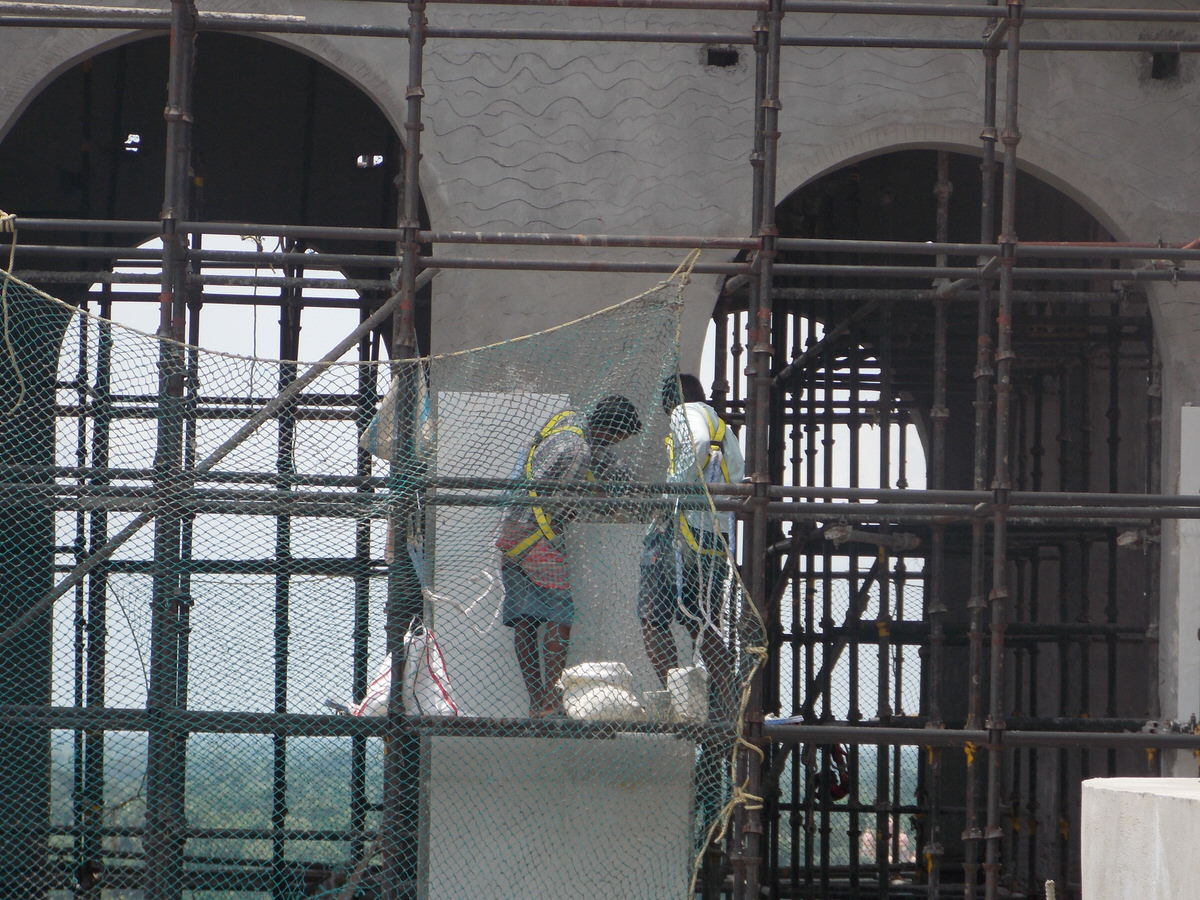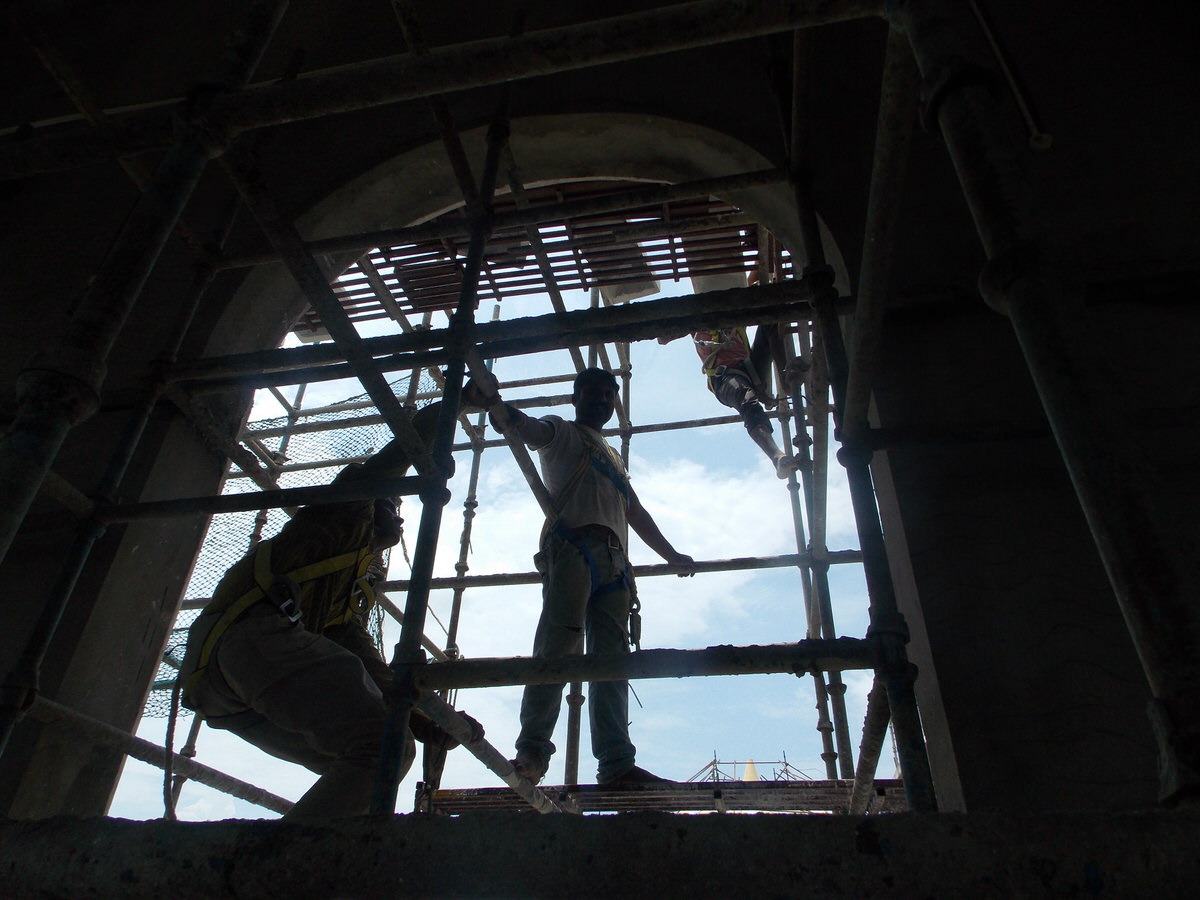Chatris are elevated dome-shaped pavilions used as an element in Indian architecture. They are commonly used to depict the elements of dignity and honor in architecture. The word chatri means “canopy” or “umbrella.” The word chatri is also used to refer to the small pavilions that mark the corners and roof of an entrance of a major building.
They are widely used in palaces or in forts. They originated in Rajasthani architecture and were used as memorials for kings and royalty. These pavilions are purely decorative and announce the caliber and wealth of the owner.
The TOVP is a physical expression of the Perfection of our Gaudiya Vaishnava Philosophy. Thus, chatris are the ideal structural symbols of spiritual opulence to decorate our rooftop. ISKCON is an international society with the focused intention of uniting all Peoples under one umbrella with one common cause. Hence, this creative fusion of various spiritual cultural elements is easily perceived in the architecture of our chatris.
In the early stages of construction, the chatris appeared like a top hat of a fairy giving a mood of innocence and wonder. Now as the decorative details are progressing, the chatris are developing their aristocratic features. In this stage of their construction the outer wall marble is being applied, the pillars are being installed, and the roof tiles are being laid down. A gracious round of applause for all the dedicated workers who literally climb to the heights to offer their craftsmanship to the Divine!
In the glistening rays of the Indian sun and with the spectacular rooftop view of the lush green Bengali vegetation, a visit to the chatris gives one a taste of the spiritual world. The pearly effulgence of the white marble , the simple elegance of the pillars, and the calming oceanic nature of the baby blue roof tiles create a sensation being somewhere between Greece and Utopia on the way to Goloka Vrndavana. It truly is a transcendental experience.
All of the of the appropriate electrical engineering will be installed in the chatris, yet is unknown exactly what they will be used for. It is tentatively planned for the chatris to be used for our scriptural study class of the Srimad Bhagavatam. There are 8 chatris, and thus each one could be used for Bhagavatam class in a different language. Yet, as the TOVP is an all auspicious and always evolving project nothing is set in stone. The TOVP belongs to the will of God, so anything and everything is possible. The chatris teach us to appreciate the beauty and the opulence of the Absolute and to simply always “go with the flow”!


